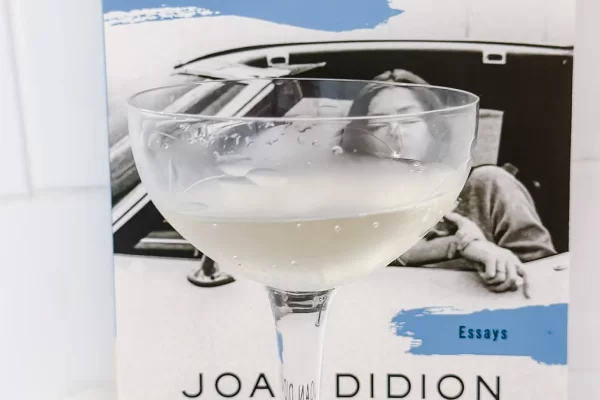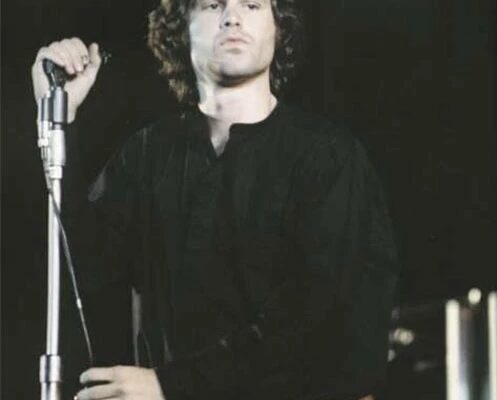Q. What made you decide to write this novel?
Tony: I had forgotten about the very first column I ever wrote for the Los Angeles Herald Examiner in 1978. I think the reason I forgot about it is that it was never published. The executive editor who was in charge of columns hated it, didn’t think it was a column and tossed it in his trash can unedited.
Q. What did you do?
Tony: I knocked out another column. Jim Bellows, the editor who had brought me to Los Angeles just days earlier, wasn’t in the office. So, after submitting the new column, I walked up to the office of the publisher, Francis Dale, and handed in my written resignation.
Q. You resigned? Did the publisher try to talk you out of it?
Tony: Yeah, but I wanted out. I thought I’d committed career suicide. The Herald Examiner wasn’t a very good newspaper at the time. I think it was considered one of the 10 worst newspapers in America. It had once been a decent newspaper. But a 10-year-long labor strike, the longest in American newspaper history, had almost killed it. Jim Bellows was a great newspaper editor with a fabulous reputation. After settling the strike in 1977, the Hearst corporation hired him to turn its fortunes around. And he, in turn, hired a number of us from the East Coast to come on board as columnists, editors, and reporters. I agreed to join the paper just on the basis of his reputation and a phone call. But I expected more interaction with him, which he led me to believe would be the case. Instead, I was working for an an insecure executive editor with an incredible Napoleonic complex. And I wanted no part of that.

Q. So why did you decide to stay?
Tony: The publisher bribed me. He previously had been the president of the Cincinnati Reds and the guy behind the formation of their great 1970s teams called the “Big Red Machine.” He had a lot of baseball memorabilia in his office, and he handed me a used catcher’s mitt that had belonged to future Hall of Famer Johnny Bench. He said that if I stayed and did well by him that I could have the glove. What can I say? I was a big baseball fan. I grew up with huge posters of Joe DiMaggio and Mickey Mantle on my bedroom walls. And I later became friends with Pete Rose, who was part of those great Cincinnati Reds teams. So I stayed.
Q. What was the column about?
Tony: It was about Marilyn Monroe’s last house in Brentwood. I also grew up a big Marilyn Monroe fan, and a couple of days earlier after just getting into town, I’d driven out to Brentwood to see that house. And while there, I’d met a woman cleaning the place who was one of the most captivating people I’d ever come across. She said she had been a bit actor who had never had much success and now was cleaning houses. She was about the age that Marilyn would’ve been in 1978, and she talked unlike any housekeeper you could ever imagine. I was 30, jetlagged, a little hung over from a party the previous night, and for a moment I thought, “Good Lord, could this be Marilyn I’m talking to?”
Q. Did you ask her if she was Marilyn Monroe?
Tony: Yes, I did. I’ve always believed there are never embarrassing questions. Just embarrassing answers.
Q. What did she say?
Tony: She asked me when I had last eaten. You have to understand. I weighed about 120 pounds at that time and 5-foot-eight. Some people thought I didn’t look well. And then to have asked her a question like that? I thought she was offering to make me breakfast or something. Instead, she offered to introduce me to the best place she knew in L.A. for breakfast. It was Dukes over on Sunset. She insisted on driving, and it was especially harrowing because this wasn’t my car. It was this beautiful red Porsche that belonged to a friend with whom I was staying. Not to mention the fact that I had an incredibly bad streak of luck with Porsches. I’d had one stolen in Houston, and another one had blown up in the middle of Harvard Square a few months earlier.
Q. She didn’t wreck this car, did she?
Tony: No, nothing like that. It was a fun time and a fun interview. We spent much of the afternoon together, and later I dropped her off at a friend of hers on PCH in Santa Monica. I really thought I would see her again. But then the column didn’t run. And you look like an idiot when you tell someone you’re a columnist writing a column about them and then can’t get that into the paper. So you just forget about it and move on. And I thought I was soon going to be returning to Texas or moving back east. I had committed to stay here for six months, and I kept thinking I would be gone before the end of the year. But I fell in love with Southern California.

Q. So that was the inspiration for this novel?
Tony: In a way, the woman I met at Marilyn’s house was. You know how sometimes people you meet, you keep thinking about them afterwards? I mean, what if this really was Marilyn Monroe? A few years later I met the actress Susan Strasburg, who had been a trusted friend of Marilyn’s, and the Strasbergs were major figures in her life. And one day over lunch I was telling Susan about this woman I met who was cleaning Marilyn’s old house. She was curious. She even told me something that I found even more curious—that Marilyn had said that sometimes she wished she could just disappear and be someone else. That was what triggered my imagination into the idea behind this novel.
Q. Marilyn studied under Susan’s father, didn’t she?
Tony: She did, and she left 75 percent of her belongings and IP rights to her acting coaches, Actors Studio legend Lee Strasberg and his second wife, Paula. When Paula died in 1966. Lee married Anna a year later. And after Lee died in 1982, Anna inherited Marilyn’s estate.
Q. So, it was meeting this actress-turned-housekeeper at Marilyn’s house that became the inspiration for your novel?
Tony: In a way. I mean, what if this really had been Marilyn? And not necessarily come back from the dead—but Marilyn, who somehow wasn’t the person whose body was found at her home on the morning of August 4, 1962, and took that freak opportunity to disappear?
Q. And this novel is a thriller with the central character being Josie, “a middle-aged onetime bit actress whose beauty evokes an era of old Hollywood glamour… who has found something quite valuable”?
Tony: “Yes. Marilyn’s lost diary which contains some explosive, shattering secrets—and there are individuals still looking for that memoir to try to squelch whatever is in there. I don’t want to go into too much more just now.
Q. And there’s a character who sounds a little autobiographical. A journalist. Is that you?
Tony: No, it’s an investigative reporter that Josie meets who becomes involved in trying to expose the corruption from the revelations in the diary.
Q. I believe the publisher’s blurb says, “The diary is more than just a link to the past—it is a ticking time bomb, one that, if exposed, could unravel decades of corruption.”
Tony: Exactly. We’ve had a lot of fun putting this together.





